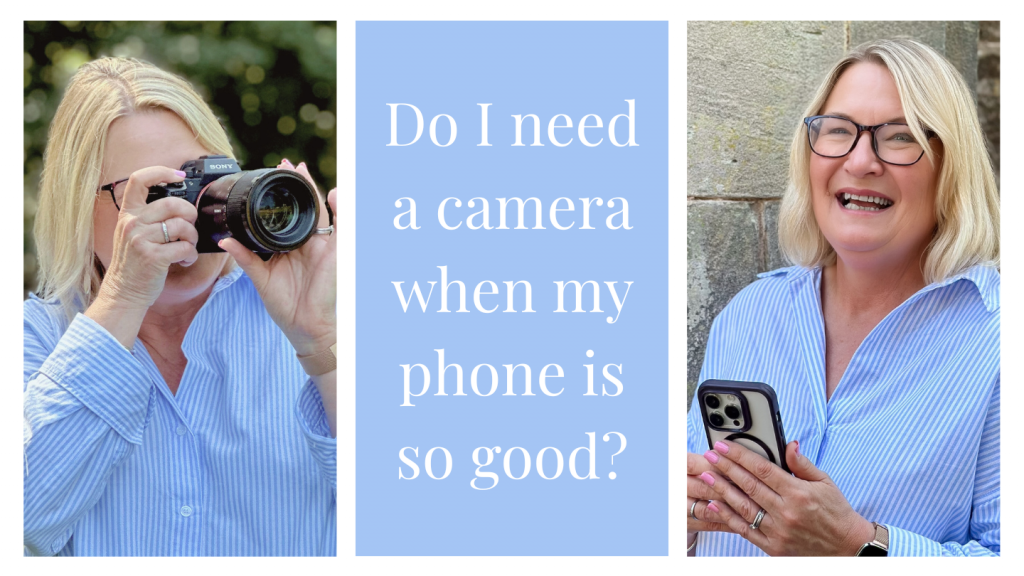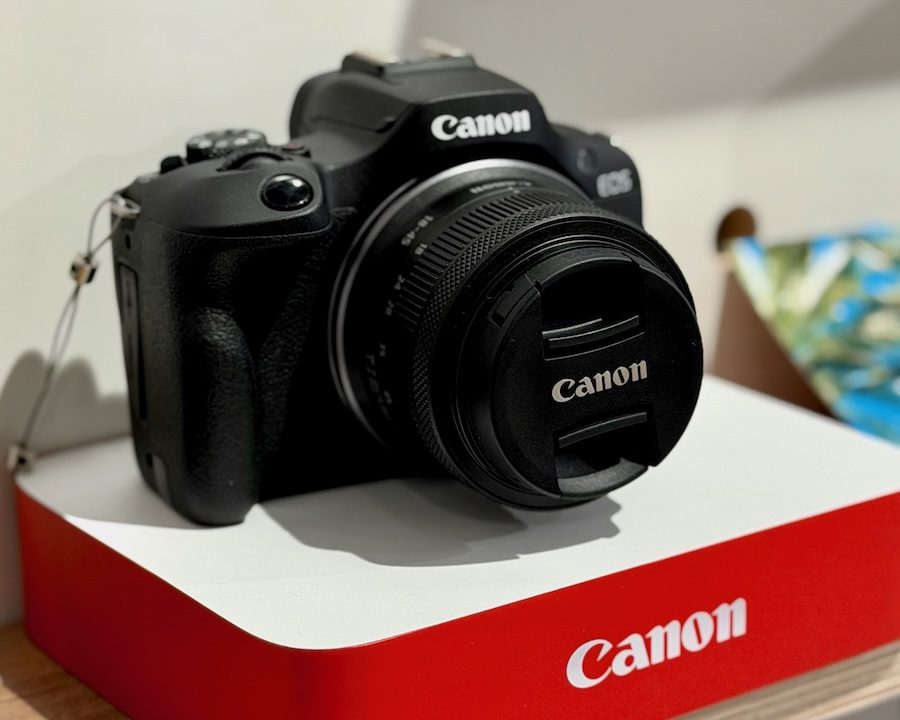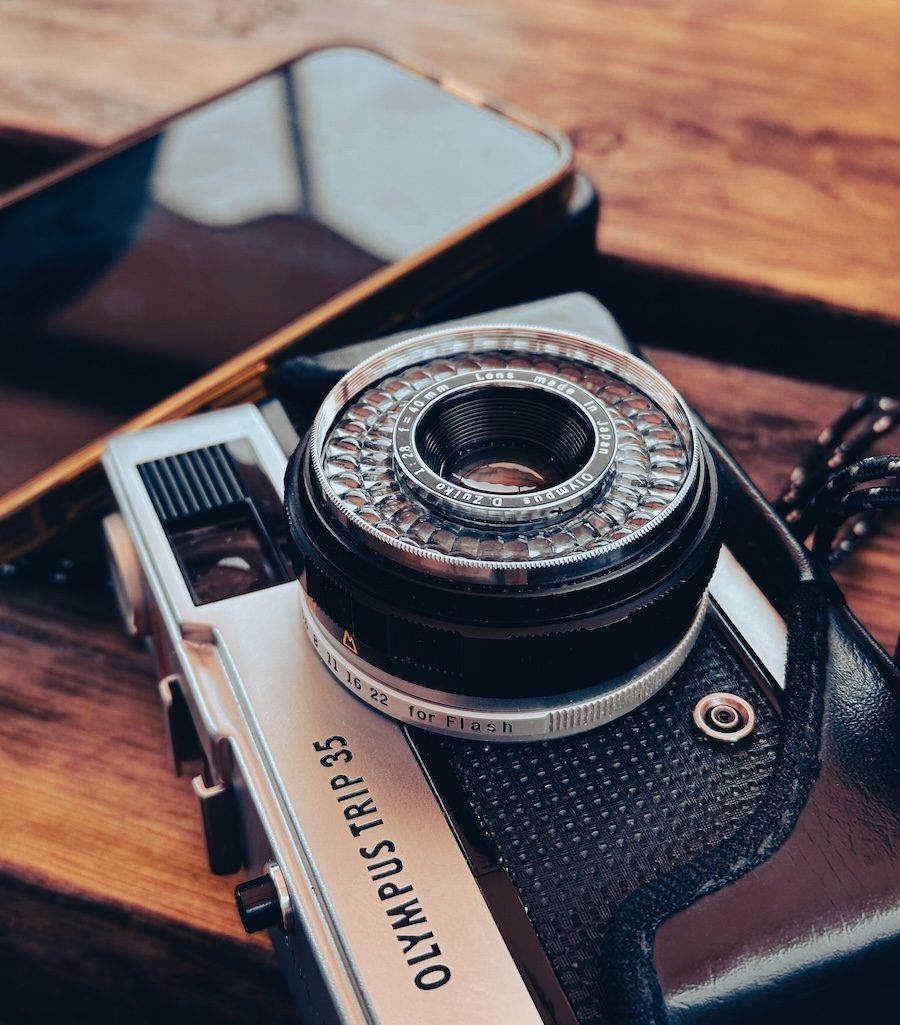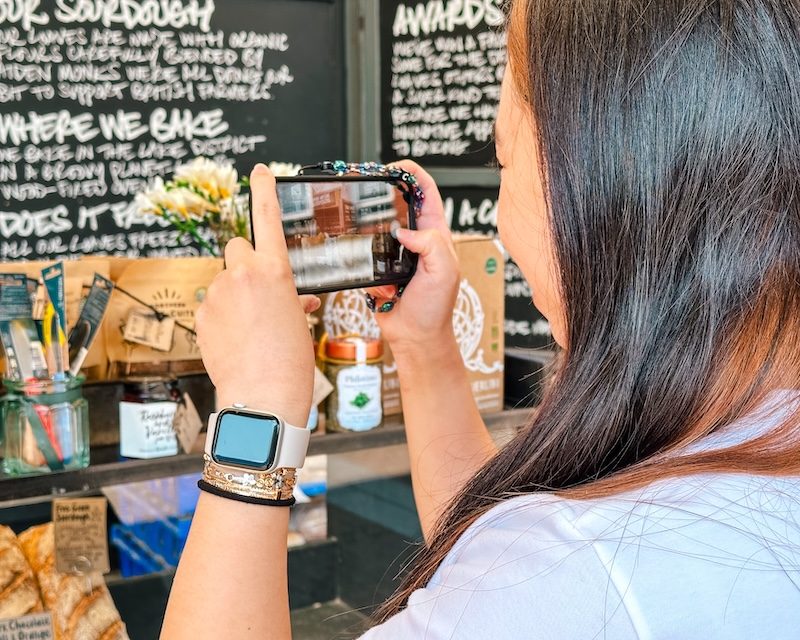
Do I Need a Camera If I Have a Phone?
Smartphones have completely changed the way we take photographs. The cameras in our pockets are now so clever that they can produce stunning images - often better than what you’d get straight out of a digital camera. So, it’s no surprise that people often ask me: “Do I need a camera if I have a phone?”
It’s a great question, and one I hear all the time in my photography workshops. The short answer is: it depends on what kind of photographer you are, and what you want from your photography. In this post, I’ll share how I see the differences between a smartphone camera and a digital camera, the pros and cons of each, and why I use both - plus a little about why I’ve even fallen back in love with film.
What Smartphones Do Brilliantly
There’s no denying that today’s smartphones are incredibly capable. They use powerful software - known as computational photography - to merge several exposures into one perfectly balanced image. That’s why when you photograph a bright sky and dark shadows, your phone somehow manages to expose both beautifully.
A digital camera could capture that same scene, but you’d probably need to edit it later to achieve the same result. Your phone does it instantly, invisibly, and impressively well.
Smartphones also:
Fit in your pocket and are always with you.
Let you shoot, edit, and share in seconds.
Handle high-contrast, low-light, and macro scenes with ease.
Offer portrait and night modes that make creative effects effortless.
Many now have several optical zoom lenses, which is a huge improvement to only having one, but still limited compared to what a dedicated camera lens can achieve. (Many people get confused understandably between optical and digital zoom. This blog post explains it.)
They’re brilliant for everyday photography - travel, food, family, social media - and they make photography accessible to everyone.
If you’d like to learn how to take your phone photography beyond simple snapshots, I run short, hands-on workshops that show you how to get the most from your phone’s camera and editing tools.
Where Digital Cameras Still Shine
Despite all that, cameras still have a lot going for them - and for some of us, they’re irreplaceable.
Creative control
A camera lets you make the creative choices. You decide what’s in focus, how blurred the background is, and whether to freeze or blur movement. The phone often decides all that for you.Image quality and flexibility
Larger sensors capture more detail and dynamic range. That means you can brighten shadows, darken skies, and edit without losing quality. It also matters if you want to print large or crop tightly.Lenses and zoom
Interchangeable lenses let you explore a huge range of perspectives - from ultra-wide landscapes to powerful telephoto shots. While many smartphones now offer longer optical zoom, they simply can’t match the clarity, compression or reach of a dedicated lens. If you’ve ever tried photographing wildlife, sports or distant details, you’ll quickly hit the limits of even the best phone zooms. A 200mm or 300mm lens (or beyond) still opens creative possibilities a phone can’t touch.Modern mirrorless cameras make it easier
You don’t have to go fully manual to get great results. Many mirrorless cameras now have excellent automatic and assisted modes, giving you that “proper camera” experience without needing to learn ISO, shutter speed and aperture straight away.
If you’ve ever thought about learning how to use your camera beyond Auto, my beginner workshops take away the fear factor and make it all click (literally).

The Joy of Using a Camera
There’s also something deeply satisfying about how it feels to use a camera. Looking through a viewfinder makes you see differently - the rest of the world disappears for a moment, and it’s just you and your composition.
Then there’s the sound: that reassuring clunk of the shutter button. It’s small, but it’s addictive - a tactile reminder that you’ve captured something real.
Using a camera naturally slows you down. You think about the light, the framing, the details. It’s mindful and absorbing, and that’s a huge part of the joy for me.
It’s also what led me back to film photography. Shooting on film makes you slow down even more. You can’t check the back of the camera; you have to trust your instincts and wait to see the results. There’s a retro charm to it - the look, the feel, even the smell of film. I’ll save the details for another blog, but it’s another reminder that photography is as much about experience as it is about technology.
The Feel of Each: Two Different Experiences
Smartphones and cameras both let you create - but they offer very different experiences.
Phones are quick, spontaneous, and connected. You can capture a moment and share it instantly. Perfect for travel, everyday life, and those unexpected bursts of inspiration.
Cameras encourage you to slow down and be intentional. You notice light, shadow, and detail. You shoot less, but with more purpose.
When I’m out walking and see a potential shot I’ll often just grab my phone - it’s there, it’s easy, and it does a great job. But when I want to play with depth of field, zoom a long way, or simply am just in the mood to use a camera, then that's what I reach for - whether it's digital or film.
Both tools inspire creativity in different ways.

So, Which Is Right for You?
Here’s my honest take:
Stick with your smartphone if you want convenience, instant results, and little to no editing. It’s ideal for capturing daily life and sharing online.
Choose a camera if you love creativity, control, and the process of learning. It’s perfect for landscapes, portraits, wildlife or anything where you want to craft the image yourself - and essential if you need the reach and quality of longer zoom lenses.
Use both - as I do. Pick whichever fits the moment, your mood, or your purpose.
Two Tools, One Passion
So, do you need a camera if you have a smartphone? Not necessarily. But you might want one - for the creative freedom, the tactile joy, and the satisfaction of slowing down.
Your phone is brilliant for capturing moments. A camera helps you make them. And for many of us, that’s reason enough to keep both in our bag.
Whether you’re shooting on your phone, a mirrorless camera, or even a roll of film, learning to see light, composition, and storytelling is what really transforms your photography. That’s exactly what I love helping people discover in my workshops. Take a look at Share Your Story where I run the workshops.


No comments yet.